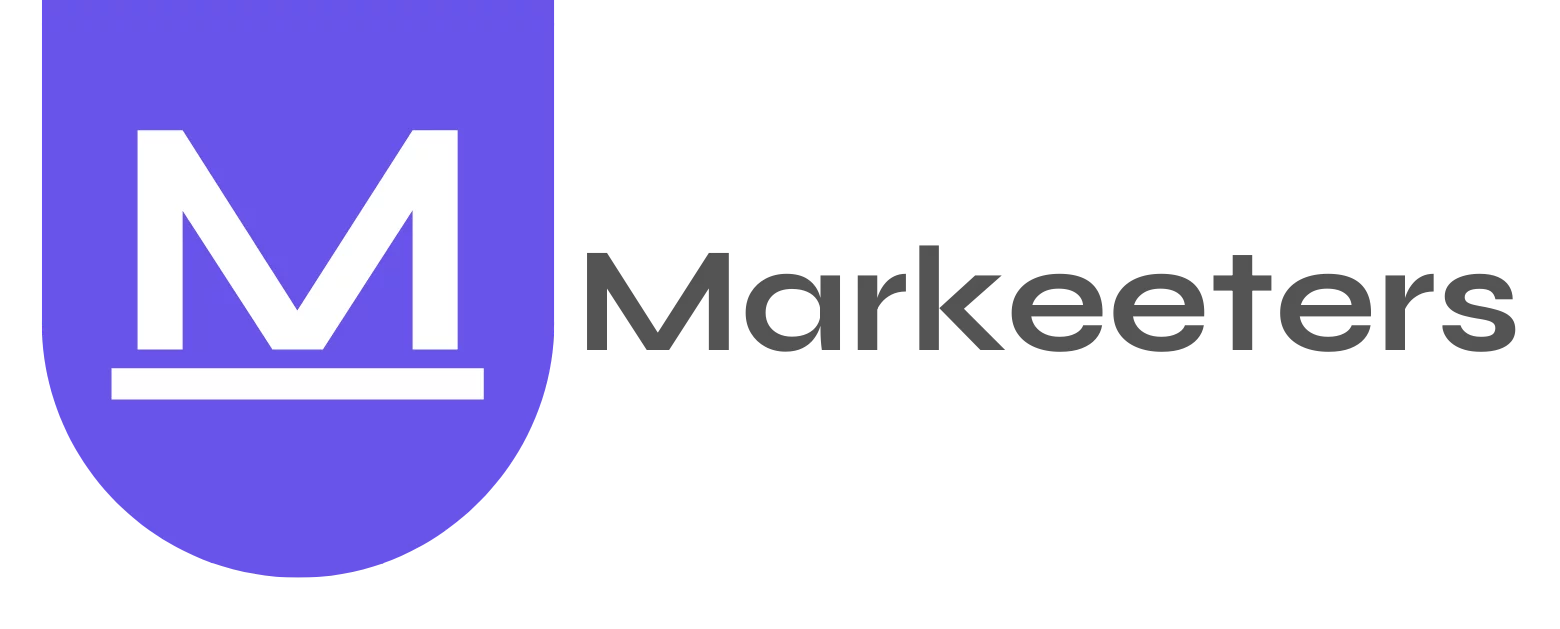Imagine this: you’re on the turbulent ride of launching a startup. It’s an exciting journey filled with challenges that push you to the limit. But in the vast internet world, where everyone is vying for attention, having a strong presence is mission-critical to your business success. That’s where an SEO expert swoops in to save the day! An SEO Expert can help drive organic traffic, improve search engine rankings, and boost your startup’s visibility and brand awareness.
But how do you select the right SEO marketer for your startup? It’s important to first understand what value will an SEO marketer bring to your business, once you understand how SEO works, it’s important to get a hang of the skills that are required to perform SEO execution and lastly ask the right questions. Whether you hire a full-time SEO expert, an agency, or an on-demand expert, you ought to understand what SEO does for your business.
In this guide, we will discuss:
- Why hiring the right SEO expert is important for a startup?
- What skills are required to build an SEO strategy and perform SEO execution?
- 32 essential interview questions, and their answers to help you make an informed decision.
Why Hiring the Right SEO Expert is Important for a Startup?
When it comes to digital marketing strategies, SEO is a cornerstone. A skilled SEO expert can provide immense value to your startup in multiple ways:
a) Increased Organic Traffic: By implementing effective SEO strategies, an expert can optimize your website to rank higher in search engine results pages (SERPs), resulting in increased organic traffic and potential customers.
b) Improved Search Engine Rankings: Higher search engine rankings drive more visibility and credibility, helping your startup gain a competitive edge and attract targeted audiences.
c) Enhanced Brand Visibility and Awareness: With the right SEO techniques, your brand can reach a larger audience, establish credibility, and increase brand awareness, leading to higher conversion rates.
d) Sustainable Long-Term Results: SEO is a long-term investment that generates sustainable results over time, unlike paid advertising which stops producing results once the budget is exhausted.
e) Better User Experience: A good SEO professional understands the importance of user experience and can optimize your website for faster loading, easy navigation, and mobile responsiveness, ensuring a positive user experience that encourages conversions and repeat visits.
What are some of the essential skills required to build an SEO strategy and perform SEO execution?
To find the right SEO expert for your startup, it’s essential to assess candidates for the following key skills:
a) Technical SEO Skills: A strong understanding of technical SEO practices, including website structure, XML sitemaps, metadata optimization, schema markup, and site speed optimization.
b) On-Page and Off-Site SEO: Being able to optimize on-page elements like title tags, headings, content optimization, URL structure, and internal linking. Experience in off-site SEO, including link building, social media integration, and online reputation management.
c) Knowledge of Keywords: A solid understanding of keyword research, selection, and optimization, to help your business target the most relevant and valuable keywords for better rankings and visibility.
d) SEO Copywriting Skills: Content plays a crucial role in SEO success. Seek candidates who can create highly useful, engaging, and optimized content that appeals to both search engines and users.
e) Google Algorithm Knowledge: Google’s algorithms frequently change, impacting search rankings. It’s important to stay updated on algorithm changes and know how to adjust SEO strategies accordingly.
f) Content Strategy Skills: A strategic approach to content creation and promotion is essential. Assess candidates for their ability to develop and implement effective content strategies that align with your startup’s goals.
g) Website Auditing Skills: An ability to conduct thorough website audits, identifying technical issues, site health, and opportunities for improvement.
32 SEO Interview Questions and Answers for Startup Founders
To help you in this process, we have compiled a list of the top 32 questions that a startup founder should ask while hiring their first SEO expert. These questions cover a range of important topics, from the candidate’s experience and knowledge to their approach toward SEO strategies and technical skills. By asking these questions and evaluating the answers, you can gain insights into the suitability of potential SEO experts, ultimately leading you to make an informed decision for your startup’s SEO needs.
1. Where did you learn SEO?
I learned SEO through an online course or self-study. This allowed me to gain a thorough understanding of the fundamental principles and best practices of SEO. I also stayed updated with industry trends and changes through blogs, forums, and online communities.
2. Why did you choose SEO as a career?
I chose SEO as a career due to my passion for digital marketing and the technical aspects of optimizing websites for search engines. I enjoy the challenge of improving a website’s visibility and driving organic traffic, and the constantly evolving nature of SEO keeps me engaged and motivated.
3. Describe an average day in your previous SEO role.
In my previous SEO role, an average day involved conducting keyword research to identify relevant and high-potential keywords for optimization. I also optimized website content by incorporating these keywords, ensuring meta tags were optimized, and improving the site’s overall structure and usability. I regularly monitored analytics to track progress and implemented link-building strategies to improve domain authority. Additionally, I communicated with clients or other team members to provide updates and address any concerns.
4. How do you stay updated on industry news and algorithm changes?
Staying updated on industry news and algorithm changes is essential in the fast-paced world of SEO. I continuously follow reputable industry blogs, attend conferences and webinars, and participate in online communities where SEO experts share their insights and experiences. I also subscribe to newsletters and receive notifications from search engines and SEO tool providers to stay informed about any updates or algorithm changes.
5. What factors make a website search engine friendly?
A search engine-friendly website includes optimized content that is relevant and valuable to users, a proper URL structure, mobile-friendliness, fast loading speed, and the presence of meta tags. It should also have a sitemap for easy indexing by search engines and adhere to SEO best practices such as using clean code, implementing proper header tags, and having a logical site structure.
6. How do you develop an SEO strategy?
Developing an SEO strategy involves thorough research and analysis. I start by conducting keyword research to identify relevant and high-volume keywords that align with the website’s goals and target audience. I then analyze competitors to identify strengths, weaknesses, and potential opportunities for improvement. I also assess the website’s current performance through an SEO audit, which includes technical analysis, site speed evaluation, and backlink analysis. Based on this research, I set specific and achievable goals that align with the client’s objectives, and develop a detailed plan with actionable steps to optimize the website and improve its visibility in search engine results.
7. What are the SEO tools you regularly use?
As an SEO expert, I regularly use tools like Google Analytics, Google Search Console, SEMrush, Moz, Ahrefs, etc., for various tasks. These tools help me with keyword research, tracking website performance and rankings, analyzing competitors, identifying backlink opportunities, and monitoring the overall SEO strategy’s effectiveness. Each tool offers unique features and insights that contribute to the success of an SEO campaign.
8. What metrics do you use to measure SEO success?
Measuring SEO success involves tracking various metrics that reflect the impact of optimization efforts on website performance. Some of the key metrics I use include organic traffic, keyword rankings, conversion rates, backlink profiles, and bounce rates. These metrics help gauge the effectiveness of the SEO strategy and provide valuable insights into areas that may require further improvement.
9. What programming languages do you have experience with?
As an SEO expert, I have experience with languages like HTML, CSS, JavaScript, Python, and other programming languages relevant to SEO tasks. This knowledge enables me to optimize various elements of a website, such as meta tags, heading tags, structured data, and site structure.
10. Which content management systems have you worked with?
I have worked with popular content management systems (CMS) like WordPress, Drupal, Joomla, Shopify, Magento, etc. These CMS platforms are widely used and offer various SEO-friendly features and plugins that facilitate website optimization and management.
11. How do you adapt to the needs of different clients?
Adapting to the needs of different clients is crucial for delivering effective SEO strategies. I start by understanding the client’s objectives, target audience, and industry. Through effective communication, I gather specific requirements and preferences. I then tailor the SEO strategy accordingly, incorporating customizations and optimizations that align with the client’s branding, goals, and desired outcomes. I maintain constant communication throughout the process to ensure that the client’s expectations are met.
12. How often do you communicate with clients?
Communication with clients is vital to maintaining a successful SEO campaign. I communicate with clients regularly through meetings, progress reports, and proactive communication channels like email or project management tools. The frequency of communication may vary depending on the client’s preferences and the project’s scope, but I ensure that clients are updated on the progress, key milestones, and any relevant insights or recommendations.
13. How do you stay organized when working on an SEO project?
Staying organized is essential for managing SEO projects efficiently. I use project management tools to create detailed plans and timelines, mapping out tasks and deadlines. I maintain thorough documentation of all project-related information, including research findings, keyword lists, competitor analysis, and results. This helps me stay focused, prioritize tasks, and ensure nothing is overlooked.
14. Share your most extraordinary digital marketing success story.
My most extraordinary digital marketing success story involved a client in the e-commerce industry. By implementing a comprehensive SEO strategy, we were able to increase their organic search traffic by 200% within six months. This resulted in a significant boost in sales and revenue, contributing to their overall business growth. The success was achieved through a combination of targeted keyword optimization, content improvements, technical SEO enhancements, and effective link-building strategies.
15. How do you approach keyword research?
I approach keyword research by identifying relevant keywords that align with the client’s objectives and target audience. I use keyword research tools like SEMrush or Google Keyword Planner to analyze search volume, competition, and other relevant metrics. I also consider user intent to understand what users are searching for and what information they are seeking. By targeting the right keywords, we can optimize content and drive targeted organic traffic to the client’s website.
16. What is your approach to proper link-building?
My approach to proper link-building focuses on acquiring high-quality and relevant backlinks from authoritative websites. I prioritize building relationships with industry influencers, bloggers, and webmasters to secure natural and meaningful backlinks. I also use various techniques like guest blogging, broken link building, and creating shareable content to attract backlinks. Ensuring that backlinks are from reputable sources helps improve the website’s domain authority and search engine rankings.
17. How do you conduct an audit for toxic links?
Conducting an audit for toxic links involves identifying and evaluating backlinks that may be harmful to a website’s SEO performance. I use tools like Google Search Console, Majestic, or SEMrush to analyze the backlink profile. These tools provide insights into toxic or spammy links that may negatively impact search rankings. Once identified, I disavow these toxic links through the search engine’s disavow tool to prevent any negative SEO effects.
18. How have you handled link penalties in the past?
Link penalties can have a severe impact on a website’s visibility and search rankings. When faced with a link penalty, I have handled it by identifying and addressing harmful backlinks. I disavow these links through the search engine’s disavow tool, which tells search engines to ignore those links. If necessary, I have also submitted reconsideration requests to search engines, explaining the steps taken to rectify the issue and requesting the penalty to be lifted.
19. Explain E- E-A-T and how you would strengthen it for a brand.
E-E-A-T stands for Experience, Expertise, Authoritativeness, and Trustworthiness. I would strengthen E-A-T for a brand by creating high-quality content, gaining positive reviews, and establishing the brand as an industry expert. This includes publishing well-researched articles, case studies, and thought leadership pieces. I would also encourage positive reviews and testimonials from satisfied customers or clients to boost trustworthiness. Additionally, engaging in industry events, conferences, and getting involved in relevant associations can enhance a brand’s authority.
20. What is local SEO?
Local SEO involves optimizing a website to appear in local search results. This is done by incorporating location-based keywords, optimizing the Google My Business profile, obtaining location-based backlinks, and adding relevant business information like contact details, opening hours, and customer reviews. Local SEO is particularly crucial for businesses targeting customers in specific regions or those with physical locations, like local stores or service providers.
21. Differentiate between on-page SEO and off-page SEO.
On-page SEO refers to optimizing on-site elements like content and meta tags. It involves optimizing keywords, implementing structured data, improving website navigation, and ensuring proper internal linking. On the other hand, off-page SEO focuses on building backlinks and managing online reputation. It involves activities like link building, guest blogging, social media promotion, and online PR to increase the website’s authority and reputation.
22. What are some common SEO mistakes?
Common SEO mistakes include keyword stuffing, which refers to overusing keywords in an unnatural way to manipulate search engine rankings. Using black hat techniques such as buying links or engaging in link farms can also lead to penalties. Neglecting mobile optimization is another mistake, as search engines prioritize mobile-friendly websites. Ignoring user experience, like slow page loading times or poor website design, can also negatively impact SEO efforts. It’s important to stay updated with SEO best practices to avoid these mistakes.
23. Explain the relationship between SEO, SEM, and social media marketing.
SEO focuses on organic search traffic, which means optimizing websites to appear in the top search engine results without paying for it. SEM, or search engine marketing, includes paid search advertising, where businesses pay to have their ads displayed in search engine results. Social media marketing aims to engage and promote through social media platforms. While SEO focuses on search engines, SEM combines paid search advertising with SEO efforts, and social media marketing focuses on engaging users through social media platforms. These strategies can overlap and complement each other to maximize online visibility and reach.
24. What is a competitive analysis?
Competitive analysis involves researching and analyzing competitors to identify their SEO strategies, keywords, backlink profiles, and other tactics in order to gain a competitive advantage. It helps in understanding industry trends, identifying areas of improvement, and developing strategies to outrank competitors in search engine rankings. By monitoring competitors’ actions, businesses can fine-tune their own SEO strategies and stay ahead in the competitive landscape.
25. What is a keyword gap analysis?
A keyword gap analysis involves comparing a website’s existing keywords to its competitors’ keywords to identify opportunities for targeting new keywords. It helps in understanding which keywords are being targeted by competitors but are not yet targeted by the website. By identifying these gaps, businesses can optimize their content and target new keywords to increase their visibility in search engine results pages (SERPs).
26. What is a canonical issue?
A canonical issue occurs when duplicate or similar content appears on multiple URLs, negatively impacting search engine rankings. Search engines may consider these pages as duplicate or low-quality content, which can result in lower visibility and rankings. Implementing canonical tags is a solution to this issue. Canonical tags can be used to indicate the preferred or canonical version of the page to search engines, consolidating the ranking signals and directing search engines to the correct URL.
27. What should a technical SEO audit include?
A technical SEO audit should include various checks to ensure that the website is optimized for search engine crawling and indexing. It should include checks for crawlability, which involves analyzing factors like robots.txt file, meta robots tags, and XML sitemaps. Site speed optimization is crucial for good user experience and search engine rankings, so it should also be assessed. Mobile-friendliness is another important factor, as search engines prioritize mobile-friendly websites. URL structure and site architecture should be reviewed to ensure proper organization and easy navigation. Finally, the audit should also analyze XML sitemaps and robots.txt file to ensure that search engine bots can easily discover and index the website’s content.
28. What are the most essential schema markups for a website?
The most essential schema markups for a website include local business schema, which provides information about the physical location and contact details of a business. Review schema helps display ratings and reviews in search engine results. Article schema is beneficial for publishers, as it helps search engines present article information in a structured manner. FAQ schema allows businesses to showcase frequently asked questions and their answers directly in the search results. Event schema helps search engines present event information, such as dates, locations, and ticketing details. Lastly, Schema for featured snippets helps increase the chances of appearing in featured snippet boxes, which can lead to higher visibility and click-through rates.
29. Explain the main components of Google’s Core Web Vitals.
The main components of Google’s Core Web Vitals are the Largest Contentful Paint (LCP), First Input Delay (FID), and Cumulative Layout Shift (CLS). LCP measures the loading performance of a webpage by identifying the time taken to render the largest content element visible to users. FID measures the responsiveness of a webpage by analyzing the time taken for the browser to respond to a user’s first interaction, such as clicking a button. CLS measures the visual stability of a webpage by quantifying the amount of unexpected layout shifts that occur during the page’s lifetime.
These metrics are important because they focus on improving page speed and overall user experience, as search engines prioritize websites that provide a fast and smooth browsing experience.
30. Why is website accessibility important?
Website accessibility is important for ensuring that users with disabilities can access and navigate websites easily. It improves user experience for individuals with visual impairments, hearing impairments, mobility impairments, cognitive disabilities, and other disabilities. Additionally, website accessibility helps businesses comply with accessibility guidelines and regulations, such as the Web Content Accessibility Guidelines (WCAG). Failing to meet accessibility standards can lead to legal consequences and damage a company’s reputation. By implementing accessibility features and making websites inclusive, businesses can expand their reach, improve user satisfaction, and demonstrate their commitment to inclusivity and equality.
31. How would you approach optimizing a website with international targeting?
When optimizing a website with international targeting, I would start by conducting thorough keyword research for each targeted region or country to identify the most relevant international keywords. I would then create separate pages for each targeted location, optimizing them with localized content, meta tags, and hreflang tags to indicate the language and country targeting. I would also ensure proper international URL structure, set up country-specific domain extensions if necessary, and submit the relevant sitemaps to search engines. Additionally, I would leverage local directories and backlinks to improve local search visibility.
32. Can you give an example of how you improved website conversion rates through SEO?
I worked with a client whose e-commerce website had a high bounce rate and low conversion rate. Through an SEO analysis, I identified that their website had slow load times and a confusing navigation structure. I optimized the website’s performance by compressing images, implementing caching, and minimizing HTTP requests. I also simplified the navigation menu and added clear call-to-action buttons throughout the website. As a result, the website’s load time improved by 40%, and the bounce rate decreased by 25%. These optimizations directly contributed to a 15% increase in conversion rates and overall revenue for the client.
Conclusion
Hiring the right SEO expert is important for the startup’s growth especially given that an SEO expert is among the first few hires for an internet business. By understanding the importance of SEO, assessing candidates based on essential skills, and asking insightful interview questions, you can make an informed decision and find the right SEO expert who will help your startup achieve sustainable growth, increased organic traffic, and improved search engine rankings.
Remember, hiring an SEO expert is a long-term investment that can significantly impact your startup’s online existence and brand awareness.





